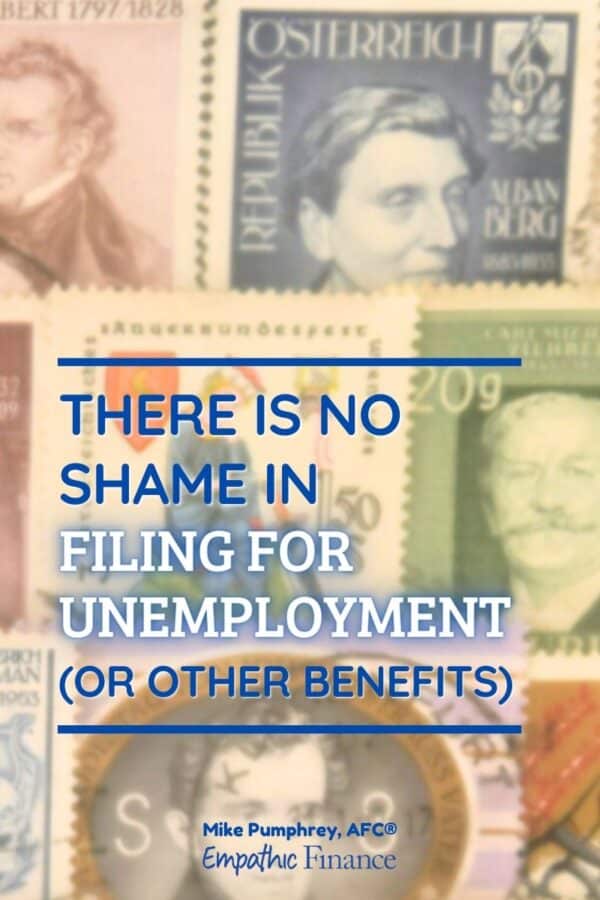We need to de-stigmatize utilizing public services such as unemployment or SNAP benefits (food stamps) when times are tough.
If you follow news of a given partisan persuasion, you’ll learn that there are many who are mooching off the system, lazy people who don’t want to work, and who are taking your hard earned tax dollars and giving none back.
I’m of course referring to hedge fund managers, Wall Street titans, and CEOs. Who did you think I was referring to??
Jokes aside, you’ve doubtlessly heard that many, mostly on the right, believe that there is this mass of people who are taking advantage of other people, financially. (Remember Mitt Romney’s 47% speech? And that was one of the least cruel examples I could think of.)
Because of this belief, the only recourse apparently is to make it as hard as possible for these people to access benefits, and to make those benefits them as stingy as possible. That’ll teach ’em!
Obviously this argument doesn’t hold up to scrutiny. People lose jobs all the time, and can’t work for all sorts of reasons. I have a friend with severe medical challenges who hasn’t been able to work in years, yet there is nothing lazy about her.
And I too, have been laid off, multiple times over the years, during those regular “redundancy elimination” bouts that companies go through increasingly frequently.
Even if you don’t buy the Republican talking line that “people are poor because they’re undeserving“, you may have internalized this in some way. It’s hard not to. You’re not “one of those people”, are you?
No you’re not. Public benefits are a public good, and if you are eligible, you should not delay in accessing them. And this goes for unemployment, SNAP benefits (food stamps), and any other program.
Table of Contents
Unemployment
The first time I was unemployed, filing for unemployment was a challenge. It’s not that it was hard, though it was long, cumbersome, and kind of annoying, but it felt weird, like visiting an unfamiliar place.
And there’s an identity component to this journey. Going from making six figures to heading to the unemployment office felt strange. “This is not who I am.”
But that was where I was wrong, because unemployment is a state of being, not a character trait. You are not an unemployed person, but instead a person who happens to be unemployed. There’s a big difference.
(Which is why, don’t get me started on the subject of calling people “illegals”.)
Unemployment Insurance is a benefit that your employer funds on your behalf. Most people don’t know this, but it’s true. Yours and other people’s employers are responsible for the money that becomes your weekly unemployment check.
This is the cost of doing business, and it is no more coming out of people’s “tax dollars” than it is anything else that’s paid for by private companies.
They paid, and you benefit. If you are eligible for unemployment, claim it. There is no shame in doing so.
SNAP
Then there are food stamps, er, SNAP. SNAP stands for “Supplemental Nutrition Assistance Program“, but that’s a mouthful, which is why I think we’ll all always refer to it as “food stamps”.
By whatever name, SNAP / food stamps is a federal program that provides monthly funds to low-income households to buy food. This is a benefit that is administered by states with funds from the U.S. Department of Agriculture.
This program gives you a monthly stipend to buy food for your household. These benefits usually renew on a monthly basis, and unlike unemployment, which runs out after a certain number of weeks, this benefit can potentially last until you don’t need it anymore.
And again, “being on food stamps” may feel bad, like you are somehow one of those people that other love to rail on. Maybe you don’t think that you are “one of those people” and therefore shouldn’t apply.
Nonsense. And really, who are “one of those people” anyway? How would you describe someone who’s on food stamps? Do you think they’re lazy? Undeserving? A problem? And if so, why exactly?
If you are eligible for the SNAP program, you should 100% take advantage of it. This program is there to be used if you need it.
And even if you’re not totally sure that you “need” it, you might as well claim it. Again, why wouldn’t you? Who benefits if you don’t claim? Think about that.
Other benefits
There are lots of other programs that you can take advantage of if circumstances are difficult. A short list:
- There are food banks that sometimes have free food boxes for pickup, no questions asked.
- There is the WIC program (Special Supplemental Nutrition Program for Women, Infants, and Children), which is similar to SNAP but for the women with young children.
- There is the TANF program (Temporary Assistance for Needy Families), which is a different kind of cash assistance for low-income families with children.
If you’re overwhelmed or unsure of what you might qualify for (and in the U.S.), there is a nifty Benefit Finder website which asks you a bunch of questions and then gives you suggestions on what program you may be eligible for.

Bottom line
There should be no stigma on applying for and taking advantage of financial assistance of any kind. It seems like a uniquely American impulse to denigrate those who make use of these benefits. Elsewhere in the world, I’m sure people scratch their heads and wonder why we are the way we are.
Also, it’s all too easy to point your finger and say that other people are somehow undeserving, but that is also conveniently overlooking all the different ways that you have benefited from the largess of society, be it your privileged upbringing, public schools, the roads and infrastructure that you used but didn’t pay for, any of it.
You—all of you—are deserving. And using public benefits doesn’t change who you are, any more than going to a public school or visiting a public hospital makes you a “moocher”.
I hope someday we can stop our race to the bottom and instead create a race to the top, where we raise our taxes and create more prosperity for as many people as possible, without judgement or penalty.
Losing a job is hard enough, and so are the financial realities of unemployment and having low-income. It shouldn’t come with stigma too.



